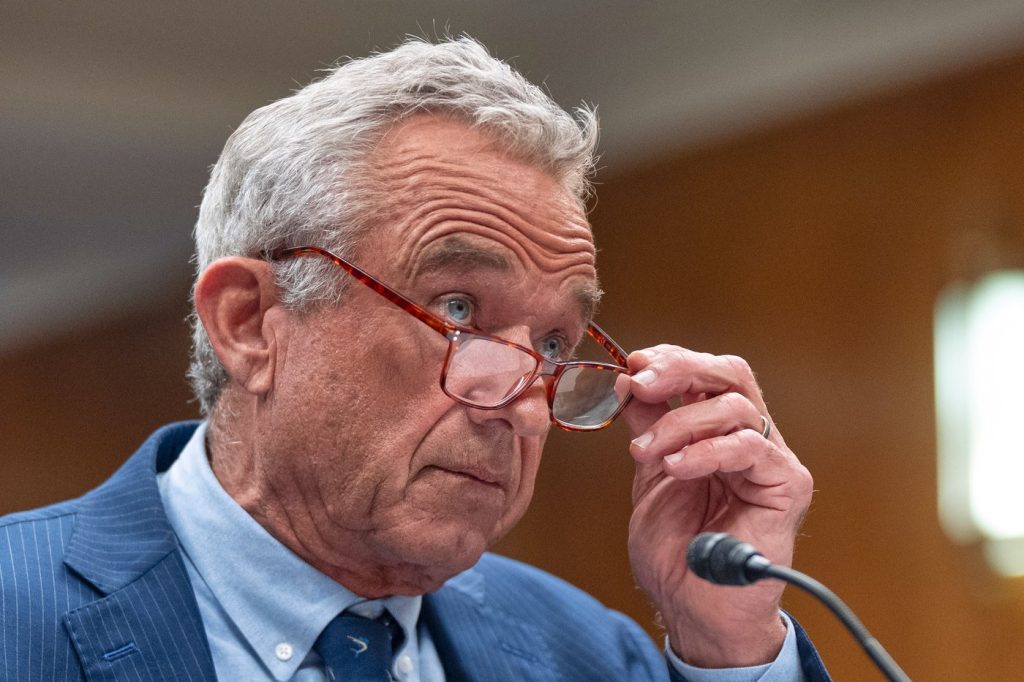The recent report titled "Make America Healthy Again," released by Health and Human Services Secretary Robert F. Kennedy Jr., delves into various contentious issues surrounding American health and wellness, including vaccines, the nation's food supply, pesticides, and prescription drugs. This 69-page document is not a legal mandate but will serve as a basis for the MAHA commission to develop actionable plans within the next 100 days, aiming for implementation during President Donald Trump’s term.
Kennedy emphasized the report's goal of tackling chronic disease epidemics, stating that targeting these issues could not only save lives but also generate significant long-term financial savings. Central to the report is an increased scrutiny of the childhood vaccine schedule, questioning existing school vaccine mandates and suggesting that vaccines undergo more rigorous clinical testing, including studies with placebo groups.
As a longstanding critic of vaccines, Kennedy has previously led a nonprofit organization that propagated false claims regarding vaccine safety. Despite the ongoing measles outbreak in the U.S., which has affected over 1,000 individuals, Kennedy continues to express skepticism about vaccination safety, with recent actions from his health department aiming to limit access to COVID-19 vaccines.
Contentious points raised in the report are generating divisions within the MAHA commission, which is composed of a politically diverse coalition. Attention is also directed to dietary guidelines and agricultural regulations, with EPA head Lee Zeldin asserting that the report will not lead to stricter regulations. Instead, he envisions a system encouraging companies to adhere to new, scientifically backed standards without imposing European-style mandates that he claims could hinder economic growth.
Despite numerous claims regarding the safety of the U.S. food supply, Agriculture Secretary Brooke Rollins maintained that it remains "100% safe," even in light of concerns surrounding glyphosate—a chemical linked to serious health problems, including cancer. The report also criticizes ultraprocessed foods, which currently constitute two-thirds of the diets of American teens and children, suggesting a link to various adverse health outcomes, although establishing concrete causation remains challenging.
Dr. Dariush Mozaffarian, a nutrition and policy expert at Tufts University, praised the report for its accurate representation of the nutrition crisis in the U.S., pointing to the insufficiency of fruits, vegetables, legumes, nuts, and fish in American diets. However, the report notably omits discussions around the dangers of excessive salt intake, which also poses health risks, particularly in children.
The MAHA commission is pushing for nationwide studies on ultraprocessed foods through the National Institutes of Health, even as the White House proposes a budget cut of $18 billion to the agency. Additionally, $500 million has been requested from Congress specifically for the MAHA initiative, highlighting emerging tensions over funding and resource allocations.
The report raises alarms about potential biases in environmental and health research funded by corporations, emphasizing the need for independent investigations. However, these calls for neutral research occur amid substantial budget cuts and job losses within the health department under Trump’s administration, which has previously dismantled several critical health-tracking programs.
Moreover, the report expresses concerns about the decreasing levels of physical activity among children and their increasing reliance on prescription drugs, including antibiotics and medications for attention deficit disorders. With President Trump expected to address the report's findings and implications later today, the outcomes of these discussions may resonate throughout the country.











